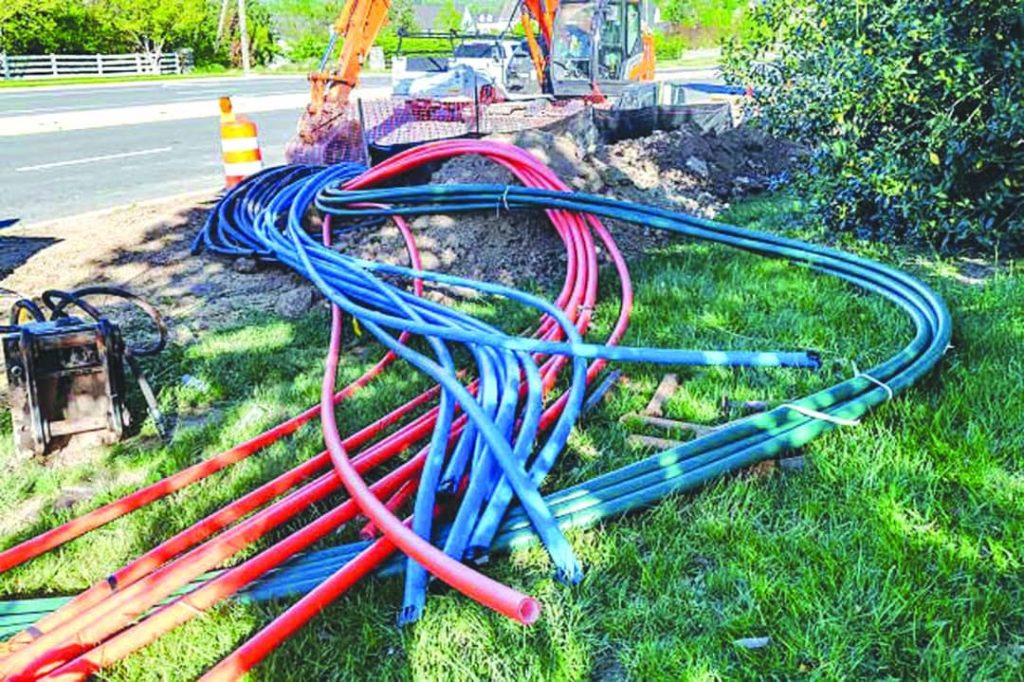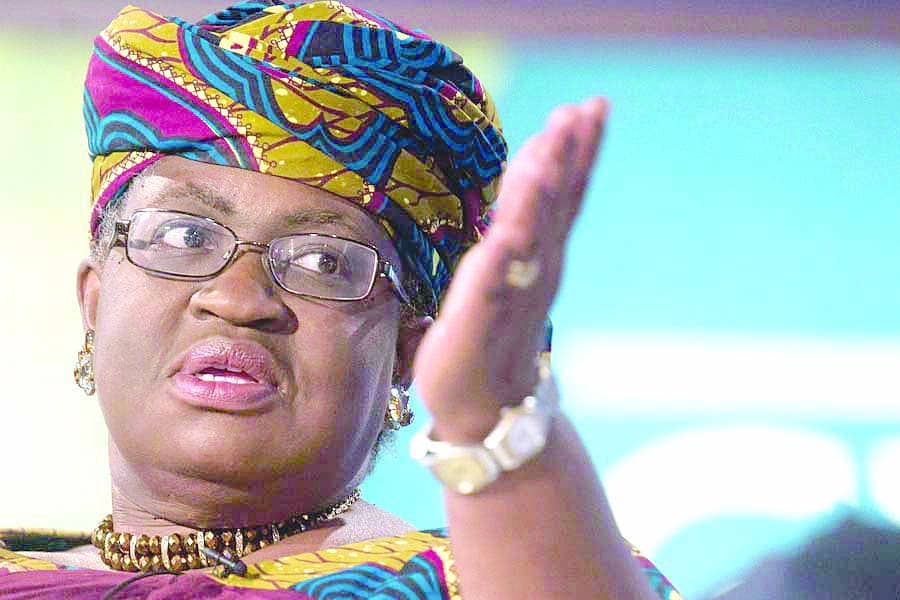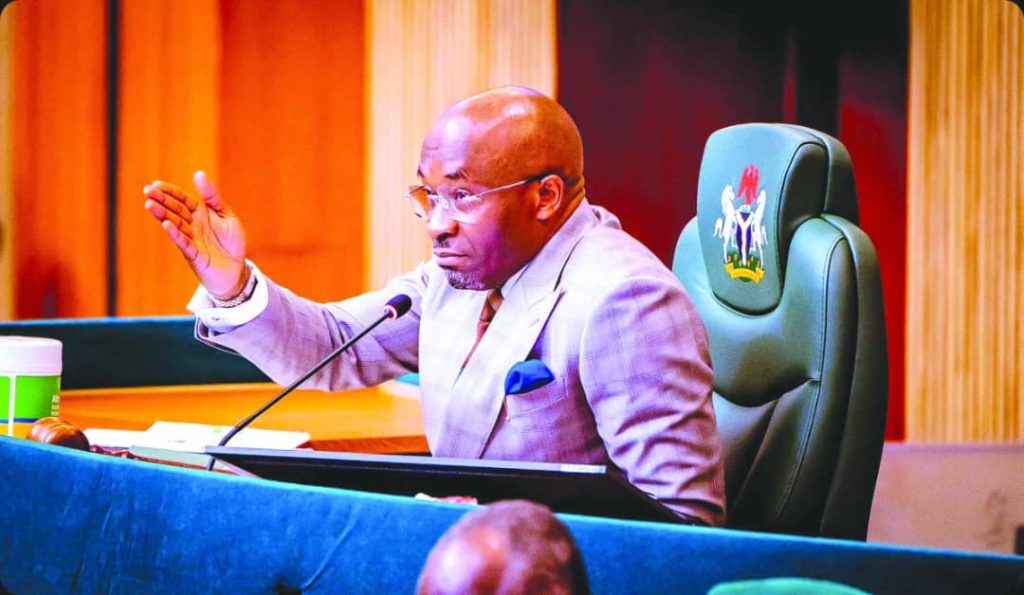WEAK BROADBAND INFRASTRUCTURE: Nigeria risks losing out in digital trade, economy

…WTO, World Bank push for aggressive broadband deployment
…Deputy Speaker Benjamin Kalu agrees, says lawmakers’ll ensure Nigeria keeps pace
By Victor Ahiuma-Young
The World Trade Organisation, WTO, and the World Bank, WB, have warned that Nigeria’s weak infrastructure and regulatory gaps could prevent the country from unlocking the potential of the billion dollar digital economy.
The WTO’s stern warning came via a new report jointly carried out by its Secretariat and the World Bank, released under the Digital Trade for Africa project.
The report, assessed Nigeria alongside five other countries; Benin, Côte d’Ivoire, Ghana, Kenya, and Rwanda and identified opportunities and challenges in building competitive digital trade systems.
The report praised Nigeria for progress in expanding digital infrastructure, but warned that internet access remains highly uneven, particularly between urban and rural areas.
Interestingly, the deputy speaker of the House of Representatives, Mr Benjamin Kalu agreed with the report, saying that expanding broadband infrastructure across the nook and cranny of the country is highly imminent, else the world would leave Nigeria behind.
Kalu said: “The world has already moved in this direction, and any delay risks leaving us behind while others surge ahead”
According to the WTO report, “expanding fibre optic infrastructure and enhancing last-mile connectivity are crucial to bridging Nigeria’s urban-rural divide and fostering a more inclusive digital economy and strengthening competition in the telecommunications sector could further drive affordability and service quality for consumers and businesses.”

The Digital Trade For Africa joint project, co-authored by Antonia Carzaniga from the WTO and Nigorakhon Sadikova and Martín Molinuevo from the World Bank, highlighted the central role of Nigeria’s services sector, particularly digitally delivered services, in driving economic growth.
“Between 2019 and 2021, Nigeria’s exports of digitally delivered services experienced sharp fluctuations, with financial and insurance services showing notable declines. However, since 2021 exports across all major service sectors have grown steadily, signaling Nigeria’s increasing integration into global digital markets.”
While Nigeria continues to lag behind Ghana in digital trade, the report found that it has outperformed several other ECOWAS countries, underscoring the strength of its long-term potential.
Nigeria has undertaken important international commitments in digital trade. It ratified the WTO’s Trade Facilitation Agreement, TFA, and made General Agreement on Trade in Services, GATS, commitments in sectors such as telecommunications.
It is also a participant in two ongoing WTO rule-making initiatives: The Agreement on Electronic Commerce, which “aims to foster an enabling environment for cross-border digital trade.”
The Investment Facilitation for Development Agreement, designed “to improve the investment and business climate, making it easier for investors in all sectors of the economy, including digital trade, to operate and expand.”

But the report cautioned that Nigeria has “not bound its trade regime for other key digital trade-enabling services, such as computer, distribution, or postal services,” and has “not eliminated tariffs on information technology goods under the WTO’s Information Technology Agreement, ITA.”
On the regulatory front, it informed that Nigeria has taken meaningful steps in data protection and cybersecurity, which the report described as “particularly valuable given the nascent nature of the country’s digital sector.”
Lamenting that significant policy gaps still remain, the noted that Nigeria must: “Clarify the scope of data storage and processing requirements for cross-border data exchange (‘data sovereignty’).”, “Improve the regulatory and institutional framework for online consumer rights and protection, “Implement regulations on electronic transactions and e-signatures.”, and “Adopt a balanced framework for platform liability to enhance transparency and trust in digital markets.”
While praising Nigeria’s reforms, the report warned of the risks of complacency, saying: “Nigeria has the foundations to leverage digital trade as a pillar of economic growth, however, without urgent reforms in infrastructure, regulation and competition, the country risks leaving its digital goldmine untapped.”
Delay ‘ll leave Nigeria behind in digital trade—Kalu
Meanwhile, on the sidelines of the just concluded WTO–Inter-Parliamentary Union (IPU) steering committee session at the Public Forum 2025 in Geneva, Switzerland, Kalu spoke to Vanguard, saying that the parliament must lead the way in lawmaking, advocacy, and oversight to drive digital transformation.
Kalu who currently represents Nigeria on the WTO–IPU Steering Committee, which provides parliamentary input into global trade debates and ensures lawmakers contribute directly to shaping international trade policy, said: “Just as I emphasized in my earlier speech, the theme of our conversation—focused on the role of parliament in digital trade—is not a mere technical footnote. It is a reality, a defining fact of our time. The world has already moved in this direction, and any delay risks leaving us behind while others surge ahead.
“Trade is no longer what it used to be. Relying solely on traditional trading systems will not deliver the economic value we seek. Globally, the marketplace has gone digital, and the encouraging news is that Nigeria has already taken a few important steps forward through laws we have passed, as well as those currently before parliament. These cover critical areas such as privacy protection, governance, and the private sector space.
“The real issue, however, is not just embracing the digital space—it is about communicating its value to those who must use it. Africa remains an evolving continent, with much of our trading practices still rooted in traditional systems. To the average cocoa or palm oil seller, all that matters is receiving payment into a bank account. Many have not yet realized that digital trade can simplify transactions, expand markets, and increase value.
“Digital innovation is already disrupting tradition, and people need to embrace these reforms. Parliament’s role is crucial here. By making, advocating, and debating new laws, we can create awareness and build public confidence. When citizens listen to parliamentary debates—grounded in research and focused on vital issues—they begin to see the benefits of entering the digital space.
“If we want to succeed in the African Continental Free Trade Area, AfCFTA, synergy across all countries on the continent is essential. We need platforms that harmonize activities within the digital trade space so that no nation is left to operate in isolation. That is why I have proposed a legislative toolkit to monitor how parliaments across Africa are addressing this subject. I also advocate stronger legislative scrutiny to ensure sound laws are made, and more importantly, to ensure their implementation matches the speed and urgency of present demands.
“This is the gap we must bridge—and it is the role parliament must play to drive digital trade and Africa’s economic future.”
The post WEAK BROADBAND INFRASTRUCTURE: Nigeria risks losing out in digital trade, economy appeared first on Vanguard News.







